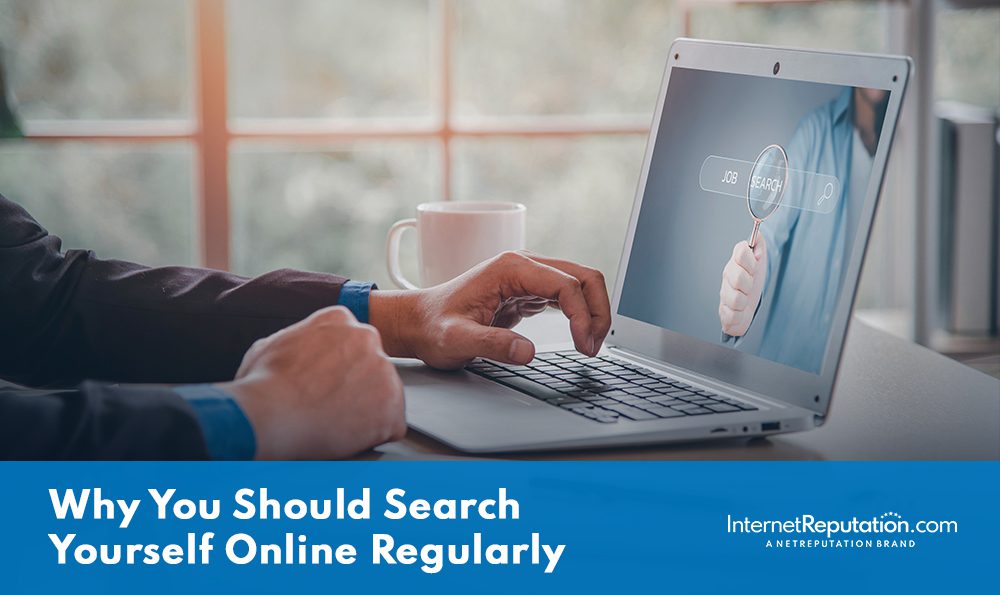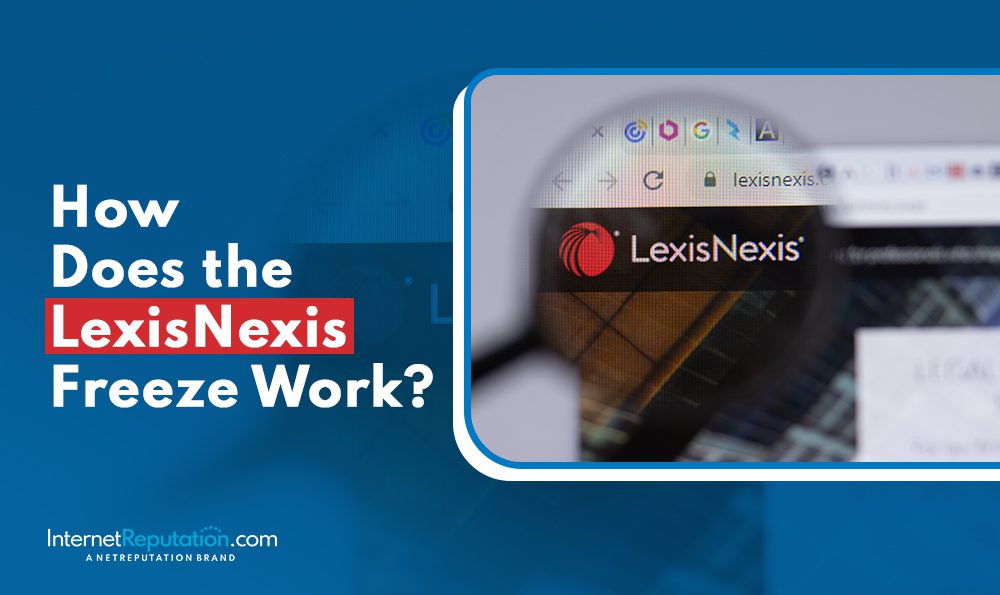Why You Should Search Yourself Online Regularly

Your online presence plays a key role in your personal and professional life. Therefore, it’s essential to search for yourself online regularly. This practice helps you stay aware of publicly available information and manage your reputation effectively. By tracking your digital footprint, you can protect your privacy and ensure your online presence reflects who you truly are.
Additionally, using Google Images to locate photos and videos of yourself that appear in search results can be vital for personal branding and reputation management.
What Information Can You Find About Yourself in Search Results Online?
Personal Information
Personal details, such as your name, address, phone number, and financial data, are often easily accessible online. This availability poses significant privacy and security risks. Avoid exposing your home address, which can lead to unwanted privacy issues. Regularly check what’s public and take steps to remove unnecessary data from broker sites. Cross-verifying your details across different sites can help you build a complete profile and enhance online security. Additionally, Googling your name maintains your online presence and reputation. Monitor social media privacy settings, use tools like LifeLock to scan for your data, and opt out of data broker sites to limit your exposure.
Social Media Accounts
Social media platforms like Facebook, Instagram, and LinkedIn contribute to your online presence and can heavily impact your reputation. This is especially relevant for employers and recruiters. A professional approach to social profiles is key. Review privacy settings, share relevant content, and keep accounts updated. Neglected or poorly managed accounts can harm your image, while a thoughtful approach can enhance it.
Professional Information
Your resume, job history, and professional content also shape your brand. Ensure this information remains accurate and visible on LinkedIn or personal websites. These platforms showcase your expertise, help you engage with potential employers, and facilitate networking with industry leaders. Update your profiles and share insights to strengthen your professional reputation.
Online Reviews and Reputation
Online reviews have a considerable influence on your reputation. Employers often consider these when evaluating candidates. To manage perceptions, regularly monitor reviews and respond professionally to feedback, especially negative comments. Encourage positive reviews from clients or colleagues to balance negative ones and support a favorable professional image.
Conducting a Comprehensive Search
Conducting a comprehensive self-search involves more than just typing your name into a search engine. Here are a few tips to help you get started:
- Use Multiple Search Engines: Utilize multiple search engines, such as Google, Bing, and DuckDuckGo, to get a comprehensive view of your online presence.
- Specific Keywords: To narrow down your search results, use specific keywords and phrases, such as your name, location, and profession.
- Image and Video Search: Use image and video search to find multimedia assets like headshots or videos featuring you.
- Check Blogs and News Articles: Search for blogs and news articles that may feature your quotes or mentions to ensure you’re aware of all online content related to you.
- Reverse Image Search: Consider using a people search engine or a reverse image search tool to find similar photos or information about you online.
These steps will help you uncover a wide range of information about your online presence.
How Can Regularly Searching Yourself Online Help Protect Your Digital Identity?
Regular online searching is key to protecting your identity and managing your personal and professional reputation. This is especially important when multiple individuals have the same name, as it helps ensure your information is not overshadowed by others. By doing this, you can quickly identify and remove any false or misleading information that could harm your image while staying alert to potential threats like identity theft and fraud.
Tools like Google Alerts, reverse image search, and specialized services can help you monitor how your name and details are used online. When you find inaccuracies, it’s crucial to act fast—especially on social media and review sites—since false information can spread quickly.
Taking immediate steps to correct or remove this content helps safeguard your integrity and reduces the risk of your data being exploited by cybercriminals. In addition, regularly updating your privacy settings, being mindful of what you share, and keeping an eye on your financial accounts are all important habits for minimizing vulnerabilities.
Controlling your online reputation also significantly impacts career success, as search engine results can substantially affect how potential employers and peers view you. Engaging on platforms like LinkedIn, sharing relevant content, and frequently checking your digital footprint ensures that your online presence reflects your professional values.
Combining these strategies will maintain a solid online image and enhance privacy and security.
Managing Your Online Reputation
Managing your online reputation involves more than just searching for yourself online. Here are a few tips to help you get started:
- Review Social Media Accounts: Regularly review your social media accounts and online profiles to ensure they are up-to-date and accurately reflect your personal and professional brand.
- Deactivate Unused Accounts: Consider deleting or deactivating any social media accounts you no longer use or may negatively impact your online reputation.
- Use Online Tools: Utilize online tools and resources, such as Google’s Me on the Web feature, to monitor your online presence and track any mentions of your name or brand.
- Set Up Google Alerts: Set up Google Alerts to notify you of any new content that may be published about you online.
- Protect Your Digital Identity: Take steps to protect your digital identity by using strong passwords, enabling two-factor authentication, and being cautious when sharing personal info online.
By actively managing your online reputation, you can ensure your digital identity remains positive and professional.
What Steps Can You Take to Maintain Your Online Privacy?
1. Regularly Review and Update Your Privacy Settings: Update your social media privacy settings to control who can view your content and personal details. Platforms like Facebook, Instagram, and LinkedIn offer tools to customize privacy, reducing exposure to unwanted attention and potential cyber threats. Managing your website and other publicly available information is crucial to protecting your online reputation and privacy.
2. Use Strong and Unique Passwords: Create strong, unique passwords with a mix of letters, numbers, and special characters. Avoid using easily guessed information like names or birthdays. Use a password manager to securely store and generate complex passwords for different accounts.
3. Be Cautious of What You Share Online: Limit the personal information you share on public platforms, such as your full name, address, or financial details. Avoid posting travel plans or other information that could expose you to risks. Stay alert to phishing emails and only click on trusted links.
4. Utilize Privacy Tools and Services: Use privacy services like DeleteMe, PrivacyDuck, and Intelius to remove personal information from public databases. Additionally, browser extensions like HTTPS Everywhere and DuckDuckGo can encrypt your browsing and block online trackers to enhance your security.
Monitoring Your Search Results
Monitoring your search results is an essential part of managing your online reputation. Here are a few tips to help you get started:
- Set Up Google Alerts: Set up Google Alerts to notify you of any new content that may be published about you online.
- Use Monitoring Tools: Utilize online tools and resources, such as Google’s Me on the Web feature, to monitor your online presence and track any mentions of your name or brand.
- Reputation Management Tools: Consider using a reputation management tool to help you monitor your online presence and track any changes to your search results.
- Protect Your Digital Identity: Take steps to protect your digital identity by using strong passwords, enabling two-factor authentication, and being cautious when sharing personal info online.
- Regularly Review Search Results: Review your search results regularly to ensure they accurately reflect your personal and professional brand, and take steps to address any negative or inaccurate information that may be published about you online.
You can maintain a positive online presence by consistently monitoring your search results and quickly addressing any issues.
Conclusion
Regularly searching for yourself online is essential for maintaining a positive presence, managing your reputation, and protecting your brand. Monitoring your digital footprint and privacy settings can reduce risks like identity theft and ensure your online information stays secure. Your online reputation can significantly impact personal and professional opportunities. Regular audits, engaging in relevant online discussions, and leveraging privacy tools help safeguard your image while fostering trust within your industry and community. These proactive steps will strengthen both your security and your reputation.



